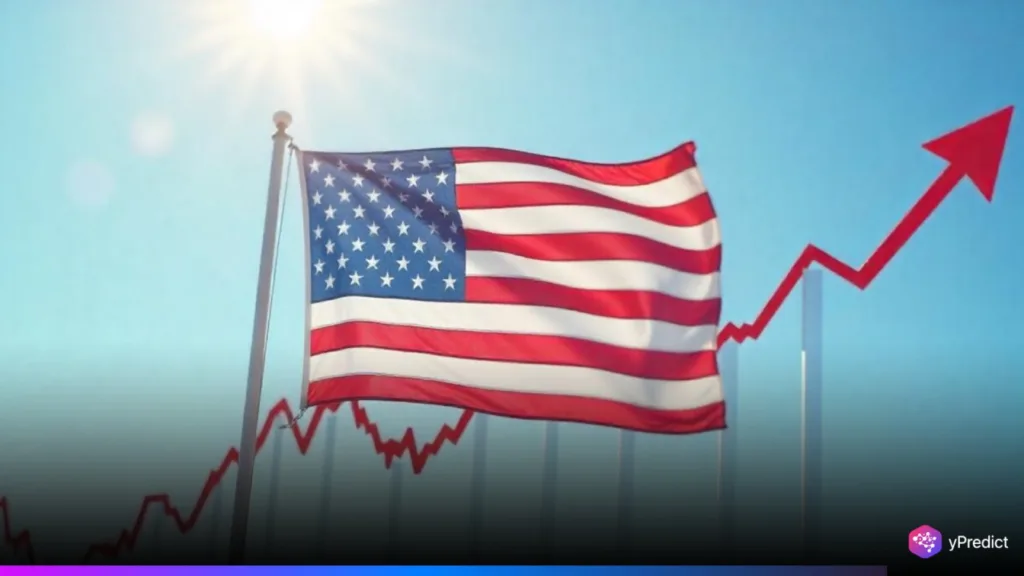
U.S. consumer confidence fell substantially in May, with the University of Michigan’s Consumer Sentiment Index plummeting to 50.8, the lowest level since June 2022. This is the seventh straight monthly decline, suggesting growing fears about inflation, job security, and declining spending power.
The unexpected drop undermines expectations of a recovery and underscores growing public concern about long-term economic stability. Rising prices for necessities such as food, petrol, and housing continue to squeeze household budgets, resulting in lower spending. Long-term inflation expectations have also reached levels not seen since the early 1980s, implying that economic uncertainty will last for months.
Inflation Expectations Surge to Multi-Decade Highs
Consumer confidence in the US economy has taken a significant hit, reflecting increased concern about inflation and ongoing trade tensions. According to the most recent University of Michigan study, inflation expectations have risen, with respondents expecting a 3.5% increase in prices over the next year, up from 3.2% in April. Long-term predictions also increased considerably, reaching 3.3%, the highest level since 2011.
Notably, the University’s sentiment index fell to 50.8 in early May from 52.2 the previous month, marking the second-lowest rating on record, only slightly higher than the historic low set in June 2022. The continuous downturn, which has seen confidence fall over 30% since January, implies that consumers are not only reacting to current conditions but also bracing for potential economic volatility.
The surge in inflation expectations is contributing to a general decrease in consumer morale. Americans’ confidence continues to dwindle as they deal with chronic price increases, uncertainty about the Federal Reserve’s monetary policy, and evidence of a deteriorating employment market. Analysts worry that this decline in optimism could have a significant impact on the Fed’s future interest rate decisions.
Tariffs and Inflation Expectations Shake U.S. Consumer Confidence
According to Bloomberg, a major source of consumer anxiety stems from ongoing concerns over trade policy. In the most recent study, tariffs were mentioned by over 75% of participants as a major concern, up from 60% a month ago. The temporary pause in the US-China trade conflict has done little to soothe the public. Many people remain sceptical, believing that the pause was too brief and unpredictable to restore trust or provide businesses and households with the information they require for long-term planning.
Meanwhile, economic statistics highlight the widening gap between consumer sentiment and real spending patterns. Despite lower-than-expected core inflation figures, excluding volatile food and energy prices, for the third consecutive month, concerns about growing expenses remain. Consumers foresee a 7.3% increase in prices over the coming year, the largest one-year inflation estimate since 1981. Looking ahead, forecasts for the next five to 10 years have grown to 4.6%, the highest level since 1991.
The survey also highlighted a growing pessimism regarding personal finances. Evaluations of current financial well-being have fallen to their lowest level since 2009, and future financial prospects have reached a new low. Broader economic confidence has weakened as well; the expectations index has nearly reached a 45-year low, and evaluations of existing conditions have also declined.
Conclusion
As inflation concerns remain and household budgets tighten, Americans appear to be shifting to a survival mindset, prioritising savings and necessities before growth or luxury spending. While the economy is technically healthy, the consumer psychology that underpins it weakens. Without a major change in cost-of-living conditions, firms and governments may face a lengthy period of economic stagnation, driven by fear rather than facts.







